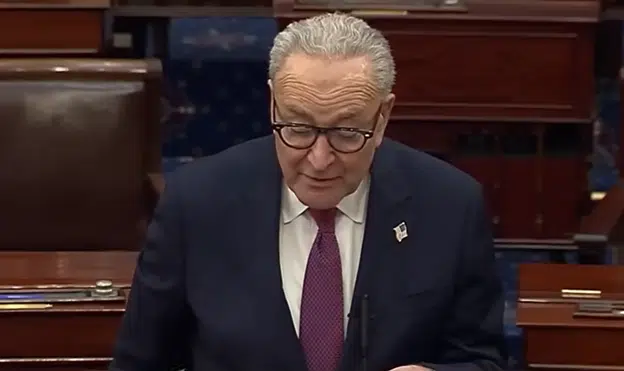By Bill Wilson — Anti-tax increase advocates were alarmed on Nov. 2 when 40 House Republicans signed a letter indicating they were open to new revenues as part of a package expected from the so-called congressional Supercommittee.
“To succeed, all options for mandatory and discretionary spending and revenues must be on the table,” the letter stated.
Members who signed the letter have said what they meant is that they support lowering tax rates and eliminating certain loopholes, credits, and deductions. Which, if that’s what the committee produces, could be worth considering, but only if on average the outcome is revenue-neutral or actually cuts taxes.
Because then the result would be a flatter, simpler code that removes inefficiency from the system, jumpstarts economic growth, and in the end would actually increase revenue.
If Congress lowered the federal corporate tax rate to just 20 percent, when combined with the on-average state rate of 6.4 percent, would bring the U.S. rate much closer to the 26 percent average rate in advanced economies. Instead, right now the U.S. has the highest corporate rate of all OECD nations.
The alternative is a tax increase that would make the nation even less competitive than it already is globally, lead to slower growth, and ultimately, lead to less revenue.
The economy is already sluggish. It doesn’t need more taxes. Research by University of Maryland economist Carmen Reinhart and Harvard University economist Kenneth Rogoff has shown that gross debt levels above 90 percent of the Gross Domestic Product (GDP) become a major drag on economic growth.
With the national debt now surpassing $15 trillion, very soon it will be more than 100 percent of the entire economy.
However, the Supercommittee was only tasked to find $1.2 trillion of savings over the next ten years, and if those were realized, the national debt would still top $21 trillion by 2021, according to South Carolina Senator Jim DeMint.
And that’s all predicated on the government’s rosy projections for economic growth coming true. If they are wrong, the debt, along with the debt-to-GDP ratio, will be much, much higher.
The fact is we are not in this predicament because we tax too little, but because we spend too much.
In 2007, the total budget was just $2.728 trillion with only a $160.7 billion deficit. Now, in 2011, according to the Office of Management and Budget, the budget will be $3.771 trillion with a $1.597 trillion deficit. That’s a 893 percent increase in the deficit in just four years.
With tax rates essentially the same, a portion of the $1.436 trillion increase in the deficit has been the recession, when revenues plummeted from $2.567 trillion in 2007 to a projected $2.174 trillion for 2011. But that only accounts for $393 billion of the increased shortfall.
Critically, the rest of the $1.043 trillion of increased debt was more spending. How can tax increases even be considered when too much spending is so clearly the problem?
Making matters worse, if the Supercommittee fails and “sequestration” kicks in, there simply will not be any cuts in 2012 at all, the only year that will matters in terms of budgeting. All other projected cuts starting in 2013 are just that — projections. They will still need to be enacted after the elections, when the composition of Congress may change.
As is seen in Greece, Italy, Portugal, and other European countries, excessive debt can be ruinous not only to a nation’s economy, but to national sovereignty and even civil order when the bill comes due. That is the risk we are taking.
There is no way tax their way ourselves out of this mess. To restore order to the nation’s fiscal house, the only things that should be on the table are cutting spending, retiring the debt, and reinstating economic growth.
Bill Wilson is the President of Americans for Limited Government. You can follow Bill on Twitter at @BillWilsonALG.






